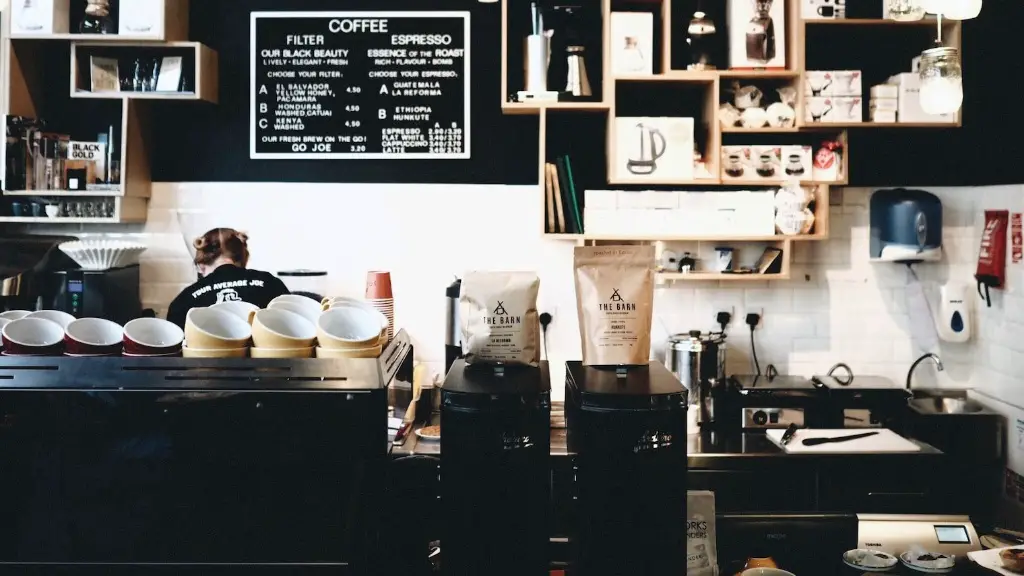Intermittent fasting is the practice of limiting your energy and nutrient intake by scheduling specific periods of eating and not eating. While there is anecdotal evidence that drinking coffee while intermittent fasting can be beneficial for some people, there is no consensus about the specifics. Coffee itself does not contain calories or carbohydrates, so drinking it does not ‘break’ the fast in a traditional sense. However, how the type of coffee consumed during a fast affects the results of the fast is still up for debate.
Caffeine itself has numerous benefits including improved performance, reduced inflammation, enhanced alertness, and increased energy levels but whether any of these benefits hold true during a fast are still to be determined. Some studies have shown that caffeine can suppress hunger and improve blood sugar levels, leading to further weight loss, but more research needs to be done.
Most of the available evidence suggests that coffee, especially black coffee, won’t directly break a fast. However, coffee can have detrimental effects if consumed too frequently or when too many additives are added. Consuming coffee with too much cream or sugar can significantly raise your calorie intake and break your fast. These are the things you should be mindful of if you plan on drinking coffee while intermittently fasting.
Although coffee does not ‘break’ your fast, there are still plenty of reasons why you may choose not to drink it. Caffeine can disrupt sleep, cause headaches and jitters, and can even be addictive. All of these can make fasting more difficult, especially if you’re aiming for longer periods of fasting. Ultimately, it is up to the individual to decide whether drinking coffee during a fast is beneficial or not.
Different Types of Coffee
Depending on the type of coffee consumed, different effects can be expected. When discussing coffee during a fast, the main types being discussed are typically black coffee and bulletproof coffee. Black coffee is usually brewed with just hot water and ground coffee beans, while bulletproof coffee is a combination of butter, coconut oil, and espresso. Bulletproof coffee can lead to higher energy levels and improved focus but may also lead to increased feelings of hunger, causing a disruption of the fast.
Because of their high fat content, bulletproof coffees can be a great addition to an intermittent fast. While not breaking the fast, the fat in bulletproof coffee can help keep you full and provide important building blocks for hormones, which is especially important when combined with fasting. However, due to their high fat and calorie content, it is important to consume bulletproof coffee with caution.
It is important to note that not all coffees are created equally and that the amount of caffeine consumed should almost always be kept in mind. Generally, the higher the caffeine content, the more prone you are to feeling jittery or having trouble sleeping. This can be especially detrimental during fasting, as poor sleep can cause your body to not reap the full benefits of a fast.
Coffee and Hydration
Hydration is a key component of intermittent fasting, and drinking coffee can help with that. Coffee can increase metabolism and stimulate fat burning, as well as act as a diuretic, thereby causing dehydration. So, to maximize the benefits of coffee while fasting, it’s important to be mindful of your hydration levels. Drinking coffee, especially black coffee, with a source of water can help prevent dehydration and ensure that the body is getting enough fluids.
It is also important to note that, even though coffee doesn’t technically break a fast, it can still interfere with your body’s ability to properly absorb and process food during a fast. If you find that drinking coffee interferes with your ability to sustain a fast or causes any negative side effects, it is probably best to avoid it.
Can Coffee be Added to Intermittent Fasting?
Whether or not coffee is suitable for an intermittent fast will depend on a variety of factors. It can be useful to consider the type of coffee consumed, the amount, and any additives present. Ultimately, it’s up to the individual to decide if drinking coffee while fasting is a good choice. Coffee can help reduce hunger, increase focus, and even act as a diuretic, but it can also cause negative side effects such as jitters and poor sleep. As with anything, moderation is key.
Can Coffee Improve Performance?
Caffeine is known to have performance enhancing benefits, and this effect is amplified when combined with fasting. Research has shown that combining fasting with caffeine can reduce fatigue and improve performance. This makes it an attractive option for athletes who want to maximize the potential of an intermittent fast. However, it is important to note that there are potential side effects to consuming too much caffeine, so it is important to be mindful not to overdo it.
Caffeine can have many beneficial effects when combined with intermittent fasting, but it’s important to consider the type of coffee consumed, the amount, and any potential side effects. Ultimately, it is up to the individual to decide if drinking coffee while fasting is a good choice.
How to Prepare Coffee for Intermittent Fasting?
When preparing coffee for an intermittent fast, it’s important to ensure it contains minimal sugar and added ingredients. Consuming sugar in coffee can quickly break a fast, so it’s important to ensure any beverage consumed is only coffee or black tea. Most people also recommend adding a source of healthy fat to coffee, such as coconut oil, almond butter, or grass-fed butter, to prevent hunger during a fast.
It is also important to consider the type of coffee consumed, as some coffees have more caffeine than others. Generally, the more caffeinated coffees will lead to more jitteriness, while less caffeinated drinks can provide more sustained energy. Loose-leaf teas such as green tea or oolong tea contain caffeine and can be a good choice for those looking for an energy boost during a fast.
In conclusion, drinking coffee during an intermittent fast has its pros and cons, and it is important to consider these before making a decision. Coffee by itself doesn’t break a fast, but it can lead to hunger if not prepared properly. Ultimately, it is important to take into account any potential side effects and consume coffee in moderation.



